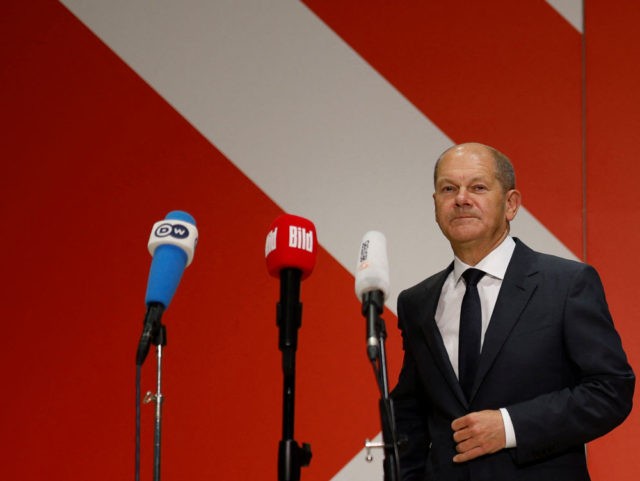BERLIN (AP) – The two parties that emerged as the likely kingmakers from Germany’s election last month said Wednesday that they will hold talks on a possible new government under the leadership of outgoing center-left Social Democrats.
If ultimately successful, which is far from certain, the negotiations would send outgoing Chancellor Angela Merkel´s center-right Union bloc into opposition after 16 years at the helm of Europe´s biggest economy.
But such exploratory talks are the first of several steps toward a new coalition government, and both parties said a coalition with the Union isn´t off the table.
Germany´s Sept. 26 election left two parties as likely kingmakers: the Greens, who finished third, and the business-friendly Free Democrats, who finished fourth. Those two parties could team up with either the Social Democrats, who narrowly won the election with outgoing Vice Chancellor Olaf Scholz as their candidate for the top job, or the Union for a parliamentary majority.
The Greens traditionally lean to the left, while the Free Democrats in recent decades have mostly allied with the Union. All four parties have held bilateral meetings with each other in recent days.
On Wednesday, the Greens said they had proposed to the Free Democrats holding three-way exploratory talks with the Social Democrats. That combination appears to offer the “biggest overlaps in terms of content,” though there are “significant open questions and differences,” Green co-leader Robert Habeck said.
A little later, the Free Democrats said they had accepted – though leader Christian Lindner sounded more cautious about the prospect. He said his party “will only enter a government of the center that strengthens the value of freedom and gives a real stimulus for the renewal of our country.”
Lindner, who four years ago pulled the plug on weeks of negotiations on a possible Merkel-led coalition with the Free Democrats and Greens, said his party’s yardstick will be with whom it can implement most of its policies.
But despite his party’s relative closeness to the Union, he noted that “the willingness to govern and unity of the Union parties are being debated in public.”
Questions have been raised over whether the center-right bloc is in any state to lead a new government after its candidate for chancellor, North Rhine-Westphalia state governor Armin Laschet, led it to its worst-ever result in the election. Both the Greens and Free Democrats also have complained of leaks from their bilateral talks with the Union.
Lindner said he set up a three-way meeting with Scholz on Thursday.
Many obstacles still have to be overcome in the process of forming a new government, which could take weeks or months. The Greens want to put fighting climate change at the center of the new government´s agenda, and they and the Social Democrats differ from Lindner’s party on how to handle the economy as it recovers from the pandemic.
The Free Democrats oppose raising taxes and loosening Germany´s tight rules on running up public debt. The Social Democrats and Greens want to raise taxes for top earners and increase the minimum wage. In Europe, the Free Democrats have tended to take a stricter line on financial aid to struggling countries.
Like Lindner, Habeck also stressed that the door wasn´t completely slammed on a coalition with the Union.
“We have seen the Union really made an effort,” he added, but his party´s differences with the center-right bloc are bigger.
If there is no agreement on a three-way alliance, a repeat of the outgoing “grand coalition” of the Union and Social Democrats – though this time with the roles reversed and Scholz as chancellor – is mathematically possible. But neither side wants it.
Until a new government is in place, Merkel will remain in office on a caretaker basis.

COMMENTS
Please let us know if you're having issues with commenting.